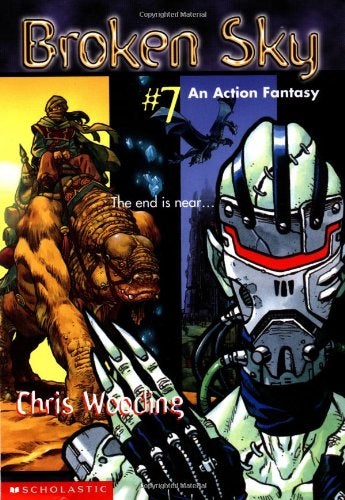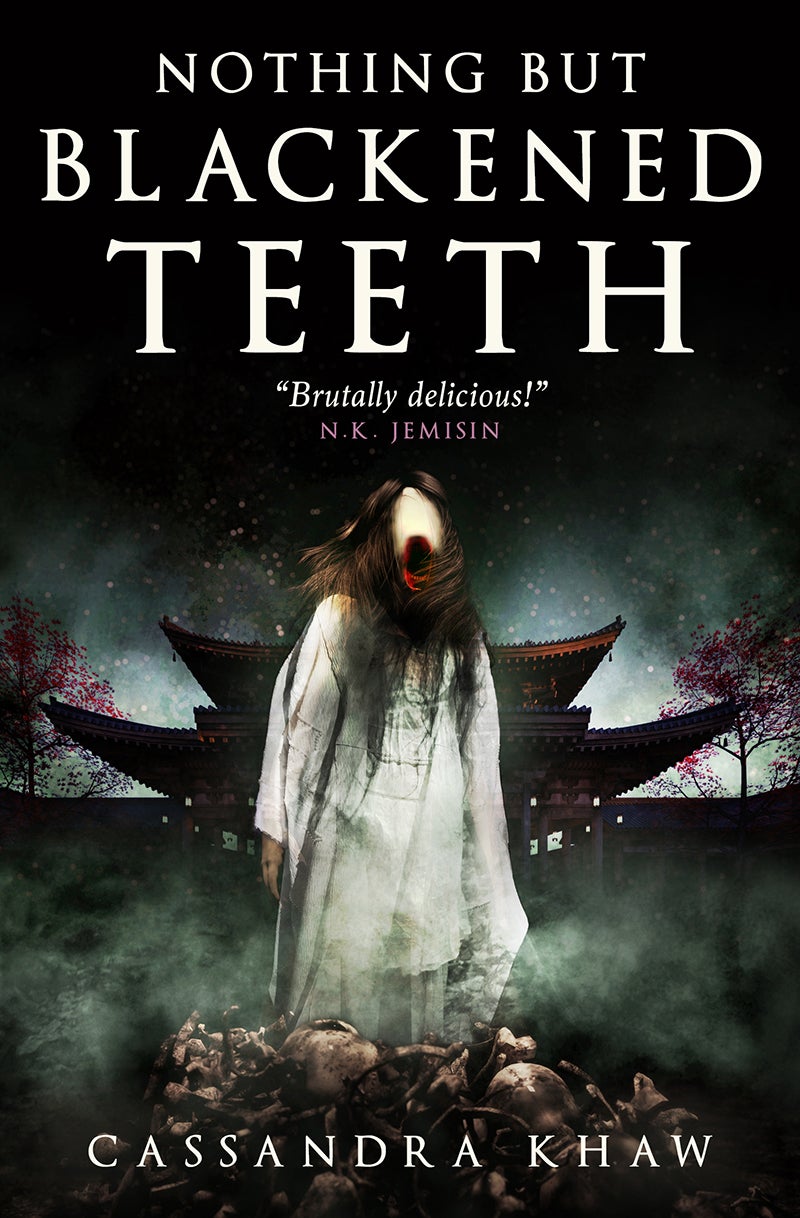Only a couple of years before the announcement of Martin’s work with Miyazaki, Torment: Tides of Numenera released, featuring writing by another famous fantasy author, Patrick Rothfuss. (Rothfuss had been a big fan of the classic Planescape: Torment, a role-playing game renowned for its narrative.) My own favourite example of a prose author writing for games is most likely Kiyoshi Shigematsu’s skilful work on Lost Odyssey, but you can go as far back as 1995 to find that Harlan Ellison wrote for the game adaptation of his short story I Have No Mouth and I Must Scream. The fantasy author Chris Wooding is part of this tradition of prose writers crossing into games writing; he worked on the recent Assassin’s Creed Valhalla. But when I catch up with him he tells me that his interest in games began many years beforehand. “I’ve been playing games ever since the days of the ZX Spectrum,” he explains. “They’ve been a part of my life since I was six or seven, I guess. I remember a summer holiday spent playing Ultima 5 that, at the time, was an experience every bit as epic as reading Lord of the Rings. So to me they’ve always been as influential as books or movies in terms of storytelling.” It was most likely a game that helped him to come up with ideas for a work of his that I still remember reading years later. “I can remember an ancient Civ clone where you could send your settlers and armies through a portal that took you to a mirror world. That was a big influence on my children’s fantasy series Broken Sky. I must have been about nine or ten and I’ve never been able to recall the name of it or find it again, and now I’m not sure if I imagined it.” (Wooding is of course not alone here. Just last year Raven Leilani spoke about the influence of Final Fantasy VII on her first novel, and Keith Stuart observed how Ico had influenced his own novel.) What appears to excite Wooding most is the special form of immersion that games offer. “Videogames, when done well, give the most visceral, immersive experiences of any storytelling medium, simply because you have some agency over them,” he says, referencing the choice mechanic in Papers, Please as an example of how this works “even where the character is barely there at all.” Game writing, Wooding notes, requires “brevity and adaptability” where one must work swiftly and be much more willing to change their work, but this has also influenced his approach to writing fiction: “That kind of creative problem solving at speed is something fiction writers rarely need to learn, but it’s made my writing better.” Cassandra Khaw is another writer who works in both mediums; aside from their celebrated fiction, they have written for games like Sunless Skies and Falcon Age. (They have also written for this very site.) Unlike Wooding, they got into writing fiction and games at almost the same time, which they note was “absolutely disorienting at first”. “From the outside, both mediums feel like they should have significant overlap, but for me, there absolutely weren’t any,” Khaw explains. “I trend towards being baroque as hell with my fiction writing,” they comment. “I experiment with structure and voice, I do weird things because they amuse me. My game writing is a lot tauter and even for little in-game story vignettes, I write more invisibly.” While they don’t see a great deal of similarities between the two areas, they are “fascinated” by the differences. “In my experience, traditional media like literature and movies all pivot around a tacit covenant between audience and creator: the creator develops an experience, and the audience agrees to follow the creator along to the end. Now, games are different. Even for the most linear games, there is a narrative the audience is telling itself on top of the story they’ve been given. Games are also things to explore, filled with corners that your audience might wander into, corners they may stay in if you don’t provide them incentive to move forward along the plot. And to propel the audience through a plot without them feeling railroaded… that’s a magic trick onto itself.” Greg Buchanan (writer for games such as No Man’s Sky) was already creating “interactive fiction projects” when he was a teenager, “mostly fanfiction about Buffy the Vampire Slayer, Final Fantasy, Kingdom Hearts,” he reflects. Buchanan got into professional games writing before publishing his debut novel, Sixteen Horses; his breakthrough was Paper Brexit, an “angry interactive fiction piece inspired by the climate around Brexit” that “ended up leading to offers of work from companies such as Supermassive Games and Hello Games”. Buchanan began work on his novel during his MA in Prose Fiction, and wrote for games at the same time. “One thing I often talk about in game writing is the idea of experience as being key to this narrative form - which seems obvious when we consider games, but the idea of a novel being experiential is not often thought about,” he observes, “especially for linear traditional narratives. So the attention I was paying to both forms at the same time meant I considered the novel as akin to a game in some ways - that the atmosphere and sequence I was providing were like an environment for a player, with a web of almost Dark Souls-y sedimentary lore and clues spread throughout.” Buchanan is interested in making players feel “emotionally responsible for what’s going on in a game”, and refers to Bioshock 2 as an example of players being led into a “morality trap” that he clearly appreciates. I ask Buchanan if this idea of ’emotional culpability’ (a phrase he uses on his website) is something he tries to apply in his fiction, too. “I’m interested in this in prose fiction also - any novel with a twist reveal does this quite naturally, banking on you having guessed X when really Y is true - but I think those particular, Bioshock 2-y game style effects aren’t often achieved in quite such a blistering way in novels, as you generally lack the conscious control of plot elements that you get in many games. So - possibly an experiment for the future!”


